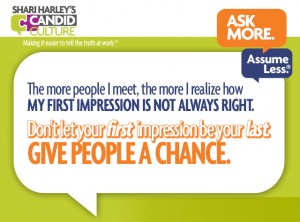When I was in college I wrote a paper making the case that most of the decisions we make are based on fear. My professor told me that I wouldn’t want the grade she’d put on the paper and told me to rewrite it. Clearly, she disagreed. Many years later, I still believe the premise of what I wrote. Much of our decision making is fear based.
We make decisions based on fear of what will and won’t happen.
Is that a good decision? What will happen if I say or do that? Will I get in trouble? Will I get what I want, or will there be negative consequences? Will we make or lose money? Will I lose my job? What impression will that decision make on other people?
Fear is pervasive. It hides in our brain and guides our decision making, without us even being aware of its presence.
I’ll never forget driving up to an ATM machine with one of my closest friends from high school. We were 30 at the time, long past high school, and were in a very quiet and safe neighborhood. And yet my friend told me not to go to the ATM machine after dark because it wasn’t safe.
Says who? A long time ago, someone told her that it wasn’t safe to go to an ATM machine at night. And she believed that she’d be robbed at night, at any ATM machine, anywhere, throughout her adult life. Not sound decision making nor a rationale fear.
Regarding decision making, who is running the show, you or your past?
When decision making, you know what’s best for you. When you quiet the noise in your head and listen, you know what to do. Trust yourself.
 Tap into your real desires. When desire overtakes fear, the world will be at your feet. But it can take a lot to even identify that fear is running the show and to know what those desires are.
Tap into your real desires. When desire overtakes fear, the world will be at your feet. But it can take a lot to even identify that fear is running the show and to know what those desires are.
Trust yourself. Not your fear. When fear rears its head, go to a quiet place, literally and figuratively, and ask yourself:
What do I really want? What should I do? You’ll know. Don’t ask 100 people what you should do. Or do ask other people for advice, but be careful with the answers you get. Underneath all that worry and concern, you know what you want. The key is to listen and be willing to trust yourself.
 You’ve undoubtedly heard that it takes fewer than 30 seconds to form a first impression. The question is how frequently is your first impression wrong?
You’ve undoubtedly heard that it takes fewer than 30 seconds to form a first impression. The question is how frequently is your first impression wrong?
If the person sitting next to you on a plane doesn’t speak to you during the entire flight, you may initially think he is unfriendly, only to strike up a conversation as the plane is landing and find out that’s not the case. If a job candidate is outgoing, you may decide she has good people skills, only to experience contrary behavior when she starts the job. If someone is late to arrive for an initial meeting, you may decide he has an issue with time management, versus he was just running late that day.
Many things go into forming a first impression. People who are tall and attractive – by societal standards – are typically perceived as likable and credible. It’s assumed that people with degrees from good schools are smart. But we all know people who went to good schools who we wouldn’t hire.
Your first impression may be right and it may be wrong, but it takes more than 30 seconds to be sure.
If you’ve participated in job interview training, you were probably trained to look for contrary evidence when forming an opinion about a candidate. Looking for contrary evidence is an attempt to disprove your first impression. If you quickly dismiss a candidate for lacking knowledge of your industry, you should ask interview questions to disprove your opinion before making a final decision.
Why not follow this practice in all settings? If you initially decide someone is trustworthy and reliable, spend more time with that person to be sure. If you quickly decide someone is unhelpful and uncommitted, give the person additional opportunities to behave differently before making a final judgment.
Snap judgments eliminate lots of great people and experiences from our lives.
Unfortunately just as we prematurely exclude potential employees, friends, and life partners without having enough information, people do this to us as well, which is why it’s important to know the first impression you, your department and your company make. If you don’t know the first impression you create, there’s nothing you can do to shift behaviors that may be costing you friends and customers.
I started asking the first impression I create after I got chucked under the bus by some coworkers. When I was new to one of my jobs, I asked my coworkers to give me feedback if they saw me do anything that got in the way of my being successful on the job. They agreed. But when they had negative feedback, they didn’t give it to me, they told my boss instead.
That’s when I got the hard and painful lesson that people have a tendency to talk about us, not to us. It’s also when I began asking the people closest to me, who I know love me and care enough to tell me the truth, the first impression I create.
Opinions are formed quickly and they’re hard to break. Give people more than one chance, and see how they show up. And know that many people will eliminate you, your department and your company after just one interaction. So find out the impression you create, giving you the power to do something about it.
Download some of the questions I ask to learn my reputation, here.

 Tap into your real desires. When desire overtakes fear, the world will be at your feet. But it can take a lot to even identify that fear is running the show and to know what those desires are.
Tap into your real desires. When desire overtakes fear, the world will be at your feet. But it can take a lot to even identify that fear is running the show and to know what those desires are.

 You’ve undoubtedly heard that it takes fewer than 30 seconds to form a first impression. The question is how frequently is your first impression wrong?
You’ve undoubtedly heard that it takes fewer than 30 seconds to form a first impression. The question is how frequently is your first impression wrong?
